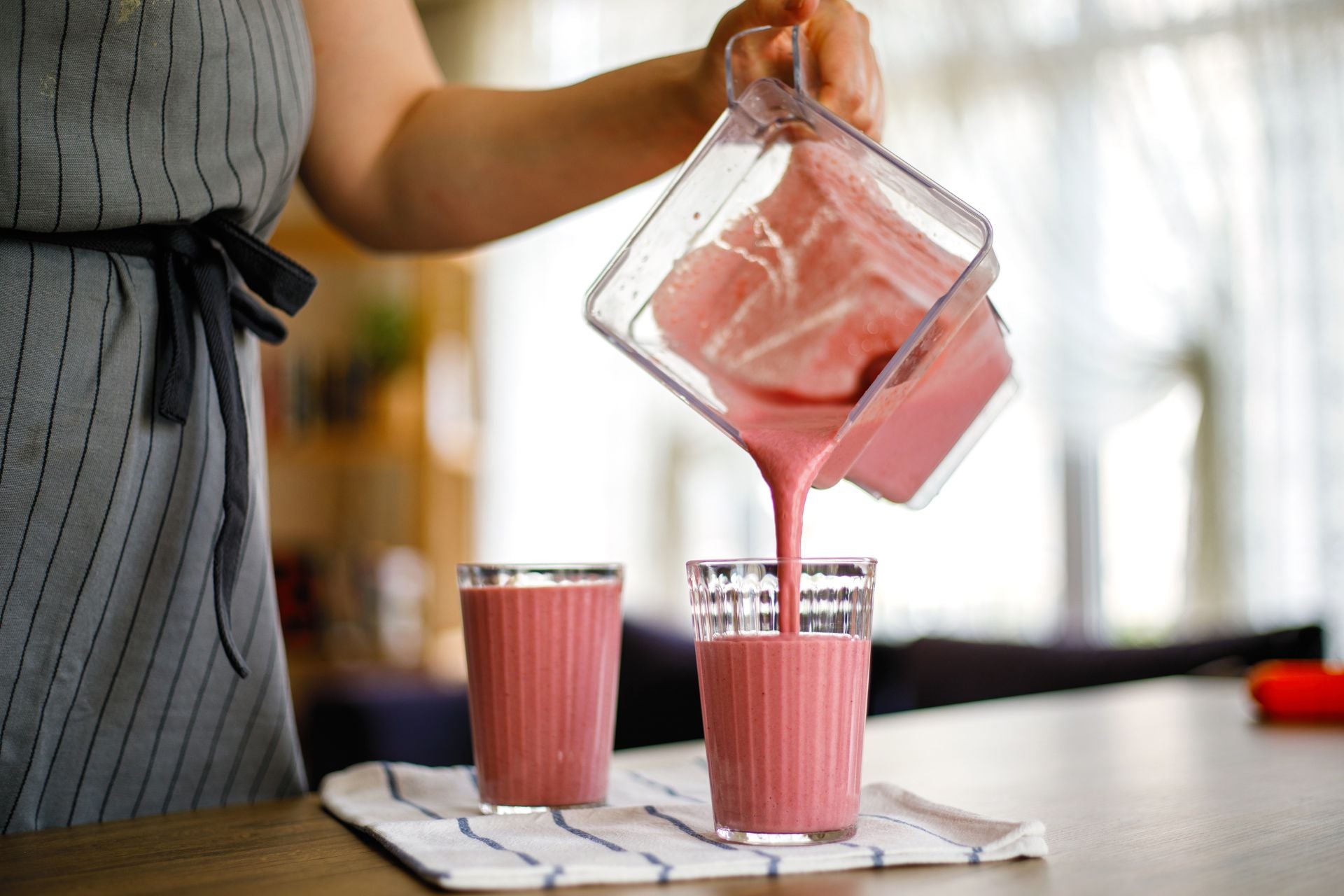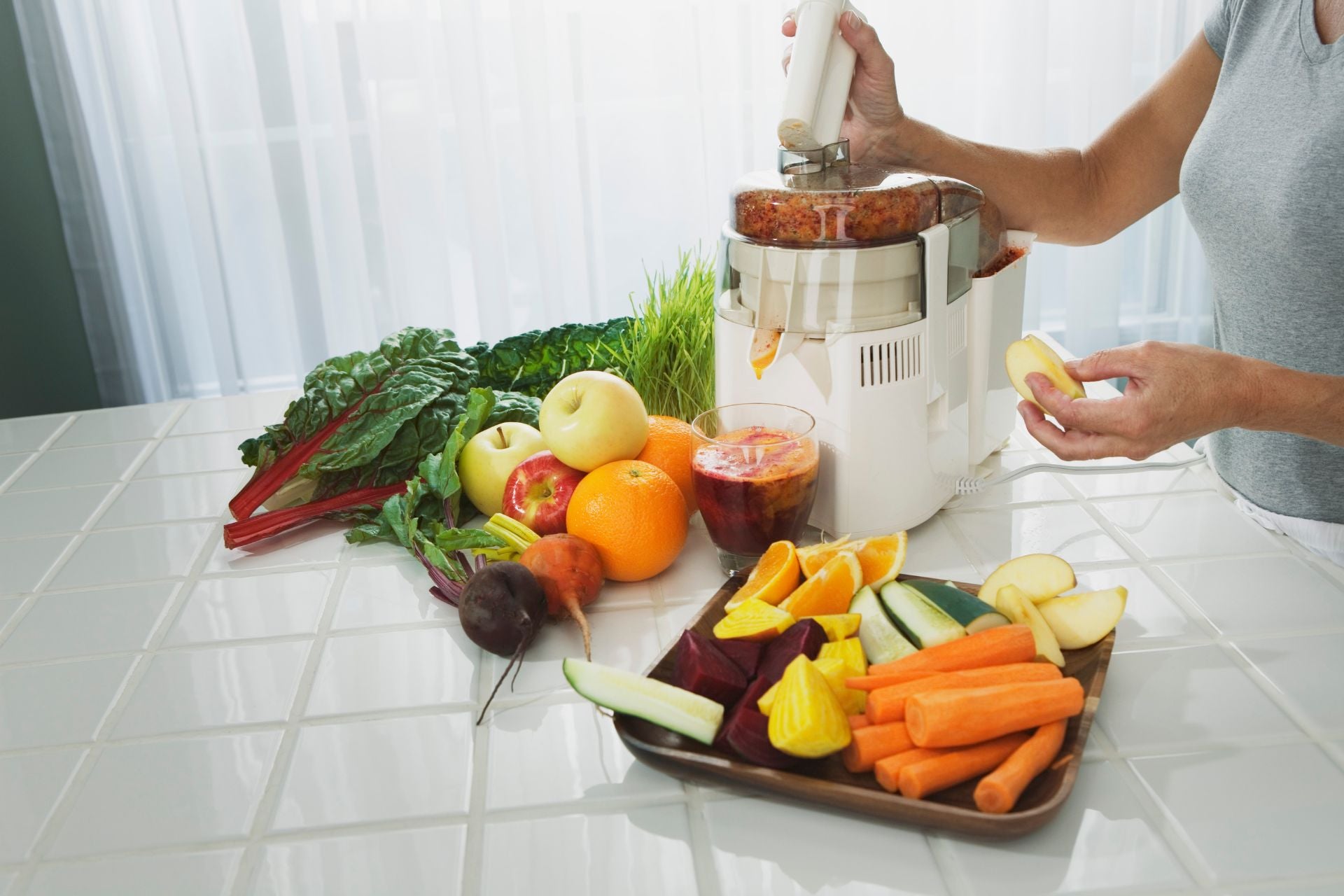
Blender vs Juicer: Which is Better?
“Is it better to juice or blend?”
You, like so many others, might be asking this question. Everyone seems to have an opinion, but nobody seems to agree. With this blog, we’ve taken our stab at the ‘blender vs juicer’ debate and share everything we think you should know about these two kitchen appliances!
Similarities and Differences
A blender is an electrical machine designed to combine, emulsify, crush, and puree solid food. They have a rotating metal blade that chops anything it encounters. Typically, they offer different modes to help you control the consistency.
Juicers are simpler and have a more direct purpose: juicing fruits and vegetables. They separate the juice from an ingredient's pulp, seeds, and skin. Where a blender combines whatever is thrown inside, a juicer separates them.
For a more detailed breakdown, check out the table below:
|
Abilities |
Blender |
Juicer |
|
Chops |
✔️ |
|
|
Crushes ice |
✔️ |
|
|
Separates pulp |
✔️ |
|
|
Makes smoothies |
✔️ |
|
|
Extracts juice |
✔️ |
|
|
Various speeds available |
✔️ |
|
|
Smoother texture |
✔️ |
Performance Comparison
1. Health Benefits
“Do I need a juicer or a blender?” The best answer to this question is that you probably need both considering their different uses.
Blenders retain most of your ingredients in the mix and keep a lot of fibre and nutrients in your drink. These components are essential to your gut health and assist in digestion.
On the other hand, juicers give you a high concentration of vitamins and antioxidants in the form of a concentrated beverage. Drinking juices can help you consume the daily recommended amount of fruits, preventing you from catching illnesses.
Juicing vs Blending Oxidation
Fruits and vegetables oxidize when cut into several pieces. Since blenders chop these ingredients, people assume that vitamins and nutrients are lost in blending. However, this is often not relevant as fruits such as apples only require five minutes before they begin losing their nutritional value through oxidation.
Meanwhile, a commercial juicer with a masticating process produces less oxidation due to crushing and pressing ingredients in the machine. This method generates less heat and preserves nutritional enzymes in your drink.
For those who may be dieting or just want healthy drinks, then both are great options supported by research. However, whether you prefer protein shakes and smoothies or homemade juices will ultimately come down to your preferences.

2. Cleaning
The convenience afforded by blenders and juicers won’t feel so spectacular if you find yourself putting a lot of time and effort into cleaning them. With that said, blenders win this category because they are typically easier to clean than juicers.
You just have to think about how they work: blenders crush everything inside the work jar and leave nothing behind. Once the jar is empty, you can either give it a quick wash in the sink or put it through the dishwasher and be done with it.
On the other hand, juicers are often trickier because pressed fruits and vegetables can stain the surface of the machine and its work jar. A stain remover can and should be used to erase any discolouration on your juicer, but this takes time.
At the end of the day, you know yourself. If you don’t mind spending some extra time cleaning your kitchen appliances, then a juicer might be great for you. However, if you hate cleaning or value your time above all else, then you should probably opt for a blender.
3. Operation
As we consider operation, it’s worth evaluating how blenders and juicers will work with your other kitchen tools and fit into your daily routine.
Manual juicers take more time to fully press fruits and vegetables. You can only put one thing at a time in the machine, meaning it can take longer than you’d probably like to produce a tall drink. Waiting around for a juicer can be a hassle for those with fast-paced lifestyles, but you can always pre-juice ingredients during your free time.
Blenders are great for when you want something quick and easy—all you have to do is dump the ingredients in the container and leave them to blend. Afterwards, you can finish a smoothie in just one gulp in a few minutes! Personal blenders are also great if you’re always on the go; these small rechargeable machines work well for frequent travellers.

4. Budget
Lastly, your budget matters when choosing between a blender and a juicer.
The prices of blenders and juicers can increase depending on their type. Vitamix blenders, for example, lie on the expensive side of the spectrum. They usually start at $1,000—pricey, but their high efficiency is suitable for commercial use.
Fortunately, for those on a budget and/or shopping for their homes rather than a restaurant, there are plenty of great affordable options out there. One is the Cuisinart 3-in-1 kitchen centre; you can blend, juice, and process food for only $200!
Ultimately, your budget is more likely to inform which brands of blender or juicer you buy rather than push you towards one or the other.
Blender vs Juicer: Which is Better?
As you’ve learned, both are great to have in your kitchen.
However, a blender may be a better investment for the average shopper given their versatility and how easy they are to clean. Juicers are better for those interested in investing the additional time and effort—for delicious juice, of course.
Whichever you choose, Shop at STOP has a variety of blenders and juicers for any budget or kitchen aesthetic. The debate between the two is far less complicated when you know you are going to love whatever you buy.
Contact us today to see what models, brands, and types we have available!




 1.800.265.2961
1.800.265.2961


Leave a comment